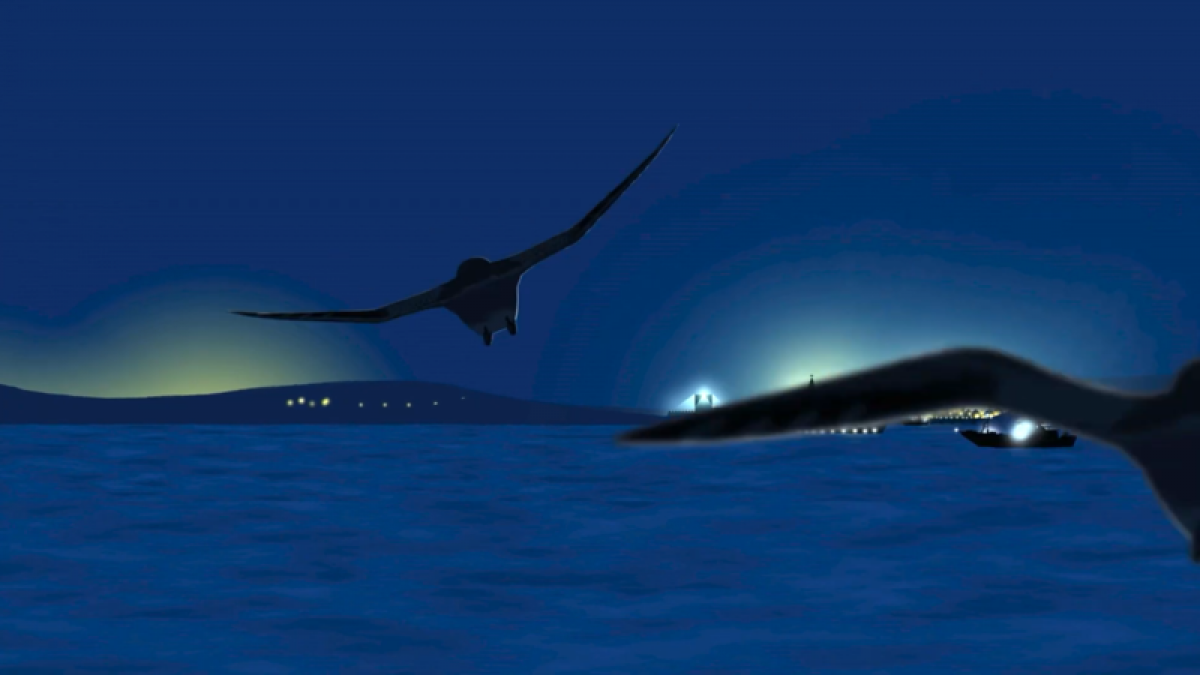Dim the lights for World Migratory Bird Day 2022

"Dim the light for birds at night!" is the slogan of World Migratory Bird Day 2022 (WMBD). The aim of this year's campaign is to highlight the negative impact that Artificial Light at Night (ALAN) can have on many nocturnally migrating bird species. The artificial glow seems to disturb the internal system birds use to navigate during the night and causes them to stray from their normal migration routes. It has been reported that flocks of birds get trapped in ‘light cones’ causing them to circle the illuminated structures for hours or they even collide with these structures, often causing their death.
For birds migrating through the Wadden Sea, brightly lit settlements along the coastline and infrastructures, such as light houses or oil platforms in the North Sea, but also fishing vessels can pose a threat. Similarly, light pollution can have adverse consequences for many other species such as insects, bats or plants. Behavioral and physiological changes, increased predation risk or habitat loss caused by ALAN inhibit natural processes with negative effects on an individual’s reproduction or survival which may ultimately lead to population declines.
Studies have shown that ALAN increases globally by at least 2 per cent per year. “This trend is quite concerning, considering ALAN’s negative impact on specific species groups and thus the functionality of whole ecosystems”, says Kristine Meise, Programme Officer Flyway & Biodiversity at the Common Wadden Sea Secretariat. “This calls for immediate action.” Many solutions to mitigate light pollution are already available and numerous initiatives are in place to raise awareness on this topic, also in the Wadden Sea region. In support of the WMBD campaign, the Wadden Sea Flyway Initiative and the Trilateral Dark Sky Initiative produced a short, animated video that explains the effects of ALAN on birds and illustrates how everyone can help minimize light pollution.
For more information on the Effects of ALAN on the Wadden Sea ecosystem, can be found here.
